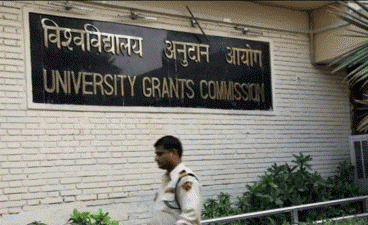UGC Draft Curriculum Highlights Ancient Wisdom in Higher Education

- 30 Aug 2025
Background
The University Grants Commission (UGC) has released a draft Learning Outcomes-based Curriculum Framework (LOCF) for undergraduate programmes in fields such as anthropology, chemistry, commerce, economics, geography, mathematics, political science, home science, and physical education.
A defining feature of this framework is the inclusion of Indian Knowledge Systems (IKS), aiming to blend traditional philosophies and practices with contemporary pedagogy. The draft has been made public for feedback from stakeholders.
Integration of Indian Knowledge Systems
The framework seeks to position higher education within India’s cultural and intellectual heritage, reflecting the vision of the National Education Policy (NEP) 2020, which emphasiseddecolonisation of curricula and recognition of indigenous wisdom.
Every subject has been asked to incorporate aspects of Indian traditions, linking them to modern learning outcomes.
Subject-Wise Highlights
- Mathematics
- Modules on mandala geometry, yantras, rangoli, kolam as algorithmic art forms.
- Study of temple architecture through ?y?di ratios.
- Contributions of Indian mathematicians in arithmetic, algebra, geometry, and calculus, and their influence on global traditions.
- Commerce
- Incorporation of Bhartiya philosophy and Gurukul pedagogy, focusing on holistic learning.
- Study of Kautilya’sArthashastra for insights into trade and financial systems.
- Ideas like Ram Rajya, Shubh-labh (profit with responsibility), CSR, and ESG frameworks integrated into modern governance discussions.
- Economics
- Emphasis on dharmic perspectives on wealth and prosperity.
- Exploration of indigenous exchange systems, agrarian values, dana (charity), and state-led economic roles.
- Ethical trade and collective enterprise highlighted as core themes.
- Chemistry
- Introduction of traditional Indian fermented drinks (kanji, mahua, toddy) in modules on alcoholic beverages.
- Integration of parmanu (ancient atomic concept) with modern atomic theory.
- Anthropology
- Curriculum draws on Charaka, Sushruta, Buddha, and Mahavira, focusing on their insights into the relationship between culture and nature.
Criticism and Concerns
- While NEP 2020 promotes interdisciplinarity, the LOCF allocates a large portion of credits to single-major courses. For example, chemistry students must take 96 out of 172 credits in core courses, reducing scope for cross-disciplinary learning.
- Critics, including some opposition-led states, allege that the draft encourages “saffronisation” of education.
- The key challenge lies in ensuring that cultural heritage is respected while preserving academic rigour, scientific temper, and global competitiveness.
Significance
The draft framework represents a paradigm shift in Indian higher education, with potential to:
- Decolonise curricula by embedding indigenous systems.
- Offer culturally rooted yet globally relevant education.
- Encourage ethical, sustainable practices across professional fields.
- Highlight India’s contributions to mathematics, medicine, governance, and economics.
Way Forward
The draft is currently open for feedback and may be revised before implementation. If adopted, it could reshape the intellectual foundation of higher education, grounding it more deeply in India’s heritage while aligning with international standards.
The real challenge, however, will be to ensure that ancient wisdom complements — rather than replaces — critical thinking, scientific inquiry, and multidisciplinary exploration.
